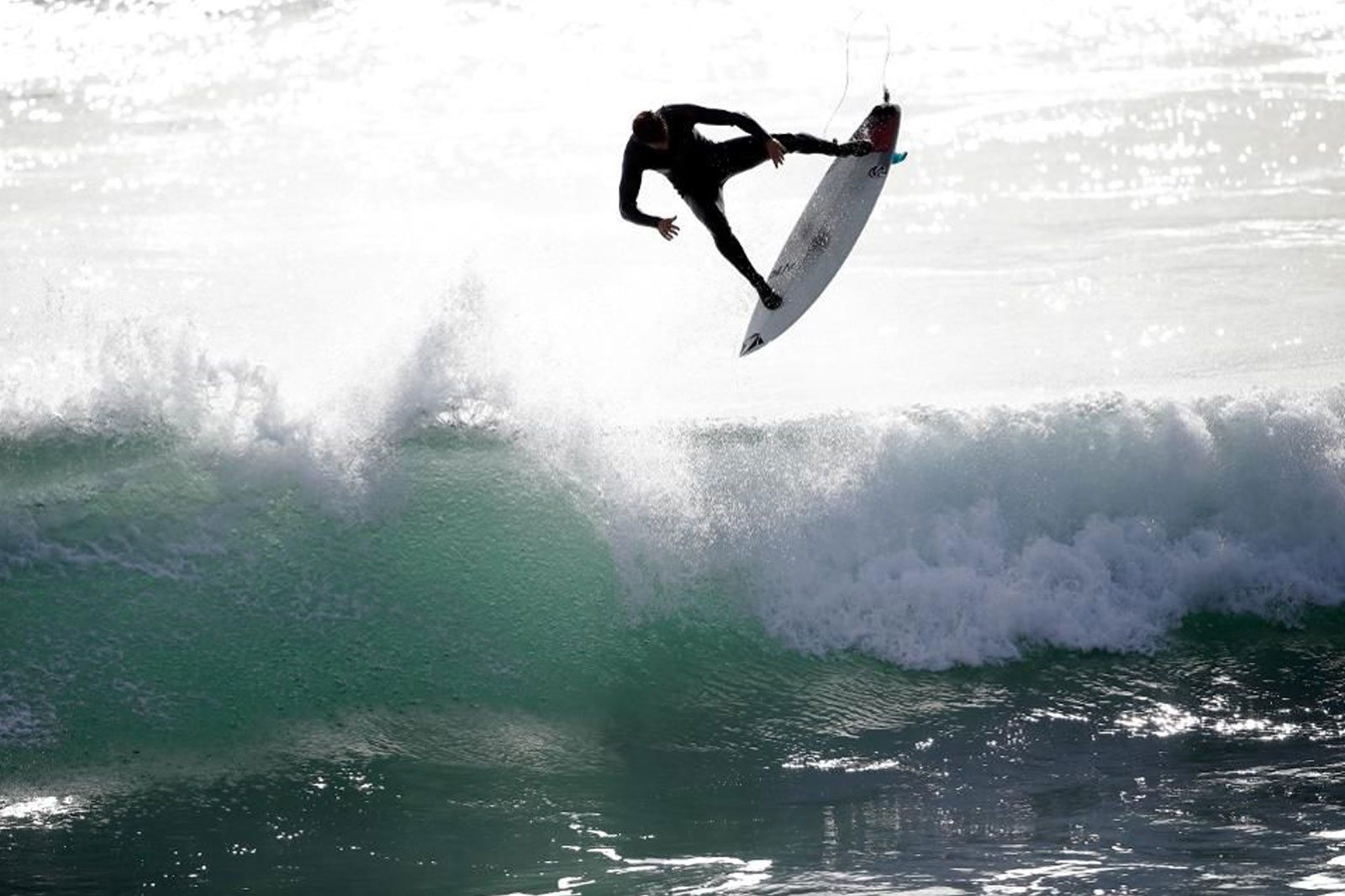
Randy Bonds leaps over a wave off Steamer’s Lane, a popular surf spot in Santa Cruz, Calif. (AP Photo/Marcio Jose Sanchez)
Beaches need a break from plastic and careless people. Until then, a startup in California has an idea for a bio-version of Styrofoam, made from shrimp shells.
Cruz Foam, of Santa Cruz, California, had “the most unusual idea” among a list of startups pitching solutions at a recent Spring Summit for Plug and Play, according to GreenBiz.
The problem: Plastics are showing up on beaches everywhere, fresh and saltwater. What starts out as a discarded beverage cup (made of, let’s say, petroleum-based Styrofoam) eventually breaks up and turns into microplastics, which have become ubiquitous in the environment.
These microplastics absorb toxins and are ingested by animals, which are then eaten by humans. The tiny bits are showing up in everything from bottled water to beer.
A solution: Since Styrofoam — the trademark name for polystyrene foam — is one of the most common plastics found on beaches, Cruz Foam wanted to create an alternative.
It turns out that CEO John Felts is a surfer, and most surfboards are made from the bad kind of foam, which takes more than 500 years to degrade. Shrimp, crab and lobster shells contain chitin, a biopolymer that can be used to make an eco-foam but usually just goes to waste.

